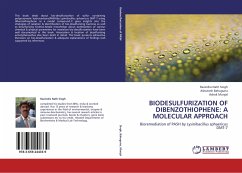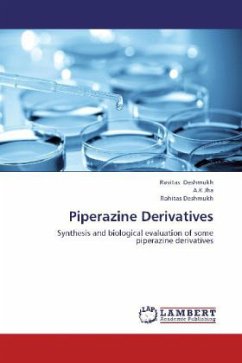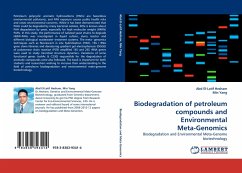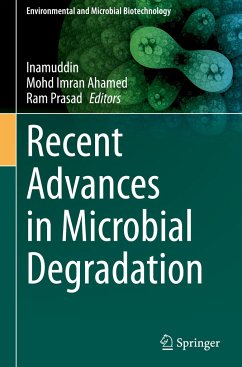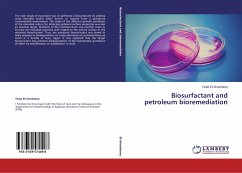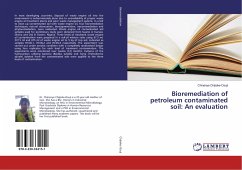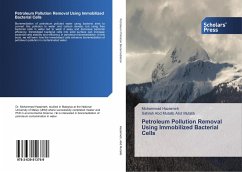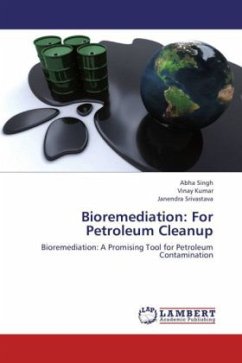
Nanotechnology in the Biodesulfurization of Petroleum Products
A promising technology to enhance petroleum products
Versandkostenfrei!
Versandfertig in 6-10 Tagen
32,99 €
inkl. MwSt.

PAYBACK Punkte
16 °P sammeln!
Up to 70% of the sulfur compounds in petroleum products are particularly recalcitrant to Hydrodesulfurization (HDS), the current standard industrial method. Biodesulfurization (BDS) is an alternative to HDS as a method to remove sulfur from oil. This book deals with enhancing BDS through Nanotechnology, which as a revolutionary new technological platform offers hope to solve many problems. How nanotechnology can contribute to enhance the presently poor efficiency of BDS? Perhaps the most problematic difficulty is how to separate the microorganisms at the end of the process. To make BDS more am...
Up to 70% of the sulfur compounds in petroleum products are particularly recalcitrant to Hydrodesulfurization (HDS), the current standard industrial method. Biodesulfurization (BDS) is an alternative to HDS as a method to remove sulfur from oil. This book deals with enhancing BDS through Nanotechnology, which as a revolutionary new technological platform offers hope to solve many problems. How nanotechnology can contribute to enhance the presently poor efficiency of BDS? Perhaps the most problematic difficulty is how to separate the microorganisms at the end of the process. To make BDS more amenable, the current book explores the use of nanotechnology to magnetize bacteria, allowing them to be separated using an external magnet. The decoration and magnetic separation works very well with higher desulfurization activity. This is proposed due to permeabilization of the bacterial membrane, facilitating the entry and exit of reactant and product respectively. The results should be help to solve many separation problems in oil industry, and should be especially useful for the next step towards commercializing this into a process in oil industries.



